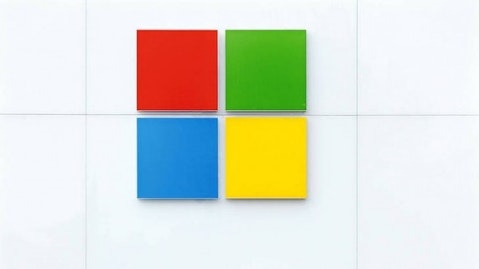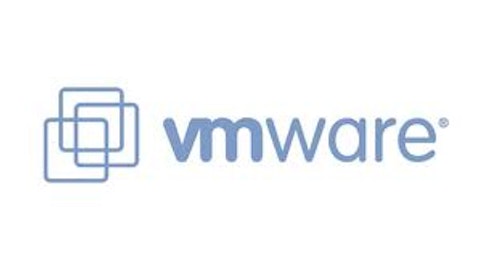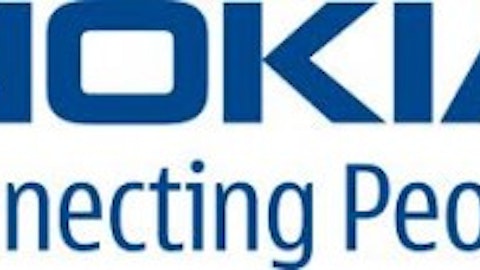The good news is that consumer adoption of Microsoft Corporation (NASDAQ:MSFT)‘s Windows 8 operating system is still on schedule. This should help to alleviate the concerns of consumers completely abandoning the Windows ecosystem just because they don’t like the Windows Metro Interface.

The market-share figure
There is a lot of outspoken criticism toward the new operating system, but if consumers are starting to adjust and like the design, why bother changing it? A reported 5.1% market share really isn’t as bad as what people are making it seem, especially in an environment of flat-to-negative desktop shipments. The company is actually doing very well with its recent operating system. No one should ever expect a product roll-out of this scale to reach rapid consumer adoption. Rather, we should have the realistic expectation of a gradual improvement in market saturation.
Onuora Amobi from Seeking Alpha states:
“If you think about Windows Vista, it didn’t get a refresh; it got shelved and replaced entirely by Windows 7. This is a very different and a much more alarming development. Second, it’s a big deal because we have had enough time to be able to look at Windows 8 and objectively state, the experiment hasn’t worked. The sales numbers have been relatively underwhelming and public opinion seems to be pretty much settled at this point. The name ‘Windows 8’ is now associated with difficulty, drama and complications.”
This, however, is not completely true. The use of the Windows 8 operating system is almost reminiscent of using a smartphone or tablet device. I find it very hard to believe that anyone would need help to learn how to navigate through a desktop or laptop version of an iPhone or Android device. That being the case, there may be some who find it difficult to navigate through the device, or find the lack of customization unappealing. The Windows 8.1 update is intended to improve the customizability of the device. Given enough time, people will learn how to use the Windows 8 operating system and will become accustomed to the differences in both design and functionality.
Going forward, sales of the Windows 8 operating system license are likely to improve even further, as Microsoft Corporation (NASDAQ:MSFT) will no longer support Windows XP in 2014, according to Hewlett-Packard Company (NYSE:HPQ). Currently the Windows XP operating system has a 37.2% share of the market, according to Net Applications. That being the case, if Microsoft Corporation (NASDAQ:MSFT) no longer supports the Windows XP operating system, there will be a rapid increase in the number of Windows 8 licenses sold. Therefore, all the speculation of declining Windows 8 license sales, not enough demand, etc., should be ignored given the product refresh cycle from Windows XP.
Who else but Hewlett-Packard?
I think it is time to consider investing in Hewlett-Packard Company (NYSE:HPQ). Hewlett-Packard is going through a restructuring that will improve the overall profitability of the business. The vast majority of Hewlett-Packard’s growth in earnings is driven by a declining head count, and process-driven improvements in how the business is run.

Source: Ycharts
Over the past year, Hewlett-Packard Company (NYSE:HPQ) has been able to improve the profitability of its business from a negative 30% to a positive 3.9%. The company reported a weakness in profitability due to goodwill impairment costs (reporting the differences in fair market value for businesses it had acquired previously). The company’s weakness in earnings was temporary.
One of the biggest concerns that investors have had in the company is whether or not the business can grow its sales. To address these concerns, I believe that the company will diversify out of its hardware business into cloud virtualization and software. I also believe that sales of desktop and laptop computers will improve once support for Windows XP ends in 2014.
Let’s not forget Dell
Dell Inc. (NASDAQ:DELL) has been busy diversifying outside of the traditional desktop and laptop business.

Source: Dell
Going forward, the company is likely to grow its software and service business to more than 50% of revenues. This will reduce Dell Inc. (NASDAQ:DELL)’s dependence on Laptop and Desktops for revenue growth. Because of this, the company seems to be on solid footing in terms of growth. The company may have further upside due to Microsoft Corporation (NASDAQ:MSFT) ending its support for Windows XP in 2014.
But ignoring the core fundamentals of the business, Carl Icahn has been stirring up a lot of controversy among shareholders and the board. Icahn believes that the takeover bid at $13.65 by Michael Dell is just too low of a price. Because of this, Icahn has put together an alternative deal that may be more beneficial to shareholders.
The basic assumption is that if Dell Inc. (NASDAQ:DELL) was to issue a special dividend worth $11.86 per share, the value of the dividend plus the open market price of the stock after issuing the dividend will be greater than the $13.65 offered by Dell. I estimate that investors could recoup $22 in value after a 90% dividend yield, assuming the price of the stock declines by 30% from the time it issues the dividend.
Conclusion
I believe that the Windows 8 operating system will continue to gain market share going forward. There will be pent-up demand for Windows 8 once support for Windows XP ends in 2014. Investors may find further upside by investing into either Hewlett-Packard or Dell. Hewlett-Packard has a short-term catalyst of cost-cutting which could lead to significant earnings surprises. Dell, on the other hand, may offer its shareholder an 80 to 90% dividend yield which could generate $22 in value per share, which is substantially higher than the $13.65 proposed by Dell.
The article Microsoft’s Windows 8 a Success? originally appeared on Fool.com and is written by Alexander Cho.
Alexander Cho has no position in any stocks mentioned. The Motley Fool owns shares of Microsoft. Alexander is a member of The Motley Fool Blog Network — entries represent the personal opinion of the blogger and are not formally edited.
Copyright © 1995 – 2013 The Motley Fool, LLC. All rights reserved. The Motley Fool has a disclosure policy.



